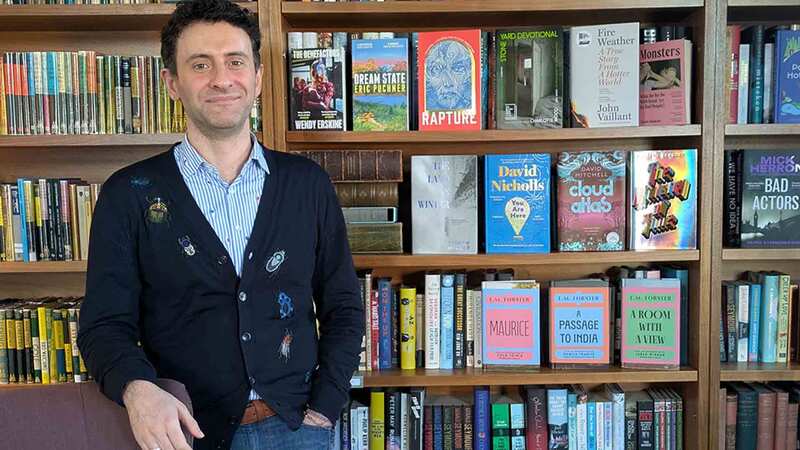You are viewing your 1 free article this month. Login to read more articles.
Necessity, my mother and summer fun invention
I was born in the long hot summer of 1976. It was the year that saw hosepipes set up in the streets, the soil at the bottom of reservoirs crack and a suburban "Citizen Kane" movement that reported on midnight car washes and watering of the roses.
We grew up in an unremarkable suburban town on the banks of the Thames in a standard issue semi-detached house, noticeable for its unruly hedge and a porch that had gone wonky from when my dad accidentally reversed into it. As money and the earning of it came fairly low down on my parents' agenda, necessity became the mother of invention and much of our childhood entertainment was conjured up out of whatever my parents could lay their hands on.
One memorable summer Saturday, my dad came home with a bucket of a boat that he'd picked up from a British Rail lost property sale. It arrived in our lives like a beacon of 1980s success, a symbol of our official arrival as a middle class suburban family. In reality it was an industrial-sized blow-up dinghy, held together with duct tape and bicycle repair patches—just the ticket to squash two or sometimes three families in for a tour along the river.
As our parents got to know the best riverside pubs and picnic spots, enjoying wine that had been tied on a string and left to cool in the water, we discovered our new adventure playground. We crouched in the shallows with knees by our ears turning over stones to catch minnows and find water snails to collect in our plastic tubs. We dared each other to leap from homemade rope swings, made mud slides and creations out of the silt that formed the river's banks, bobbed for fish, skimmed stones and spent hour after hour jumping off the boat's rubbery sides.
On the days when the sun wasn't showing its face, it was down to my mum to come up with alternative entertainment that would inevitably involve the cardboard and plastic contents of the dustbin. One of our favourites was a competition to see who could make the most impressive candle-powered putt putt boat for putt putting around the garden pond. We would spend hours carefully cutting up milk cartons, washing up liquid bottles and tin cans, and adding decoration that would inevitably cause the boats' early demise.
One of the redeeming features of our corner of suburbia was a giant park where our stressed-out parents could let us off the leash to wear us out. One of my mum's cunning tactics to persuade us to stop destroying the house and each other was the promise of a game of Gisbee. Gisbee, an ingenious blend of frisbee and golf, involves walking and throwing a frisbee from one object to the next. Each player takes it in turns to pick a marker to be the next target and agree on a realistic number of throws that it will take to reach that tree, bush or bin. If you agree a par of three for example, and reach the target in two throws, you are one under par. The winner was supposed to be the one to make it in the least number of throws, but our maths and memory generally got in the way.
My childhood taught me that you don't have to spend cash to be entertained. There is a wealth of fun and life affirming pleasure that can be found in discovering and re-discovering the simpler things in life. It's this that inspired me to write The Book of Summer. In the season of sunshine and ice cream, there is no better time to remind ourselves of the summer magic that our country has to offer.
The Book of Summer by Josie Curran is published by Virgin Books. For reminders of life's simple pleasures see Josie's blog at www.josie-curran.com.














